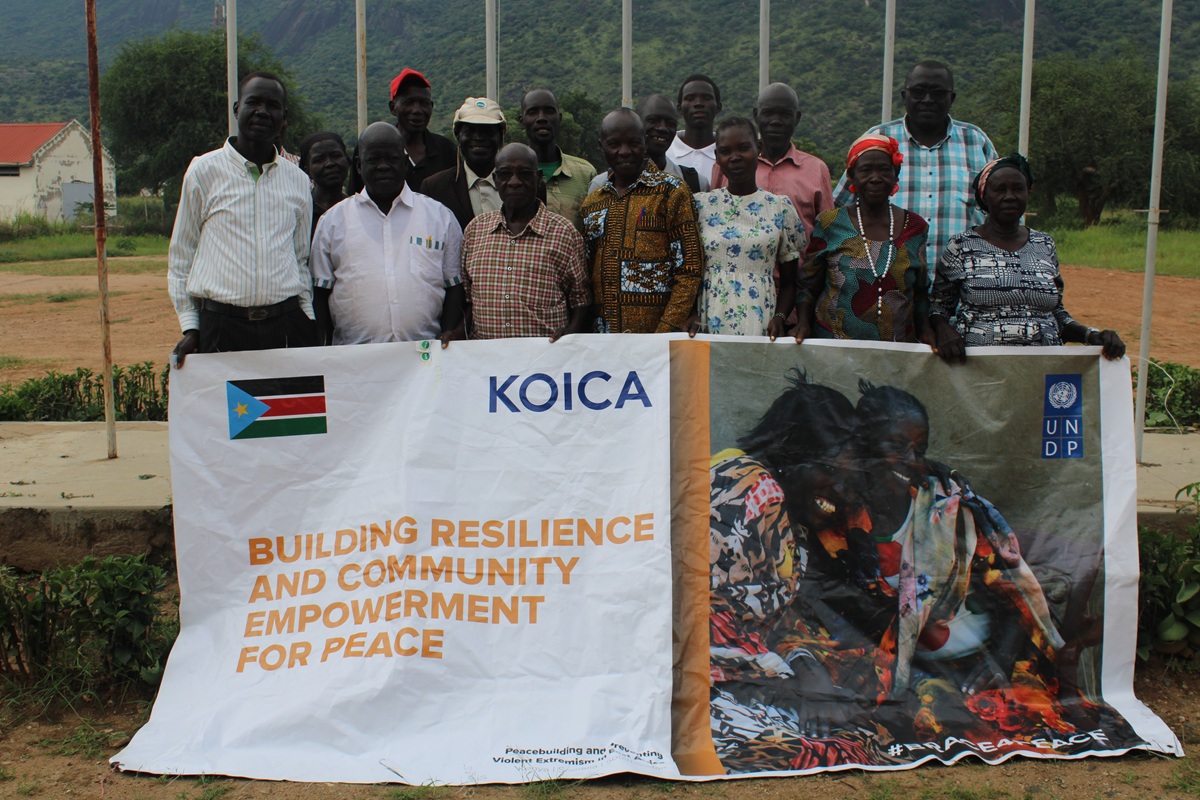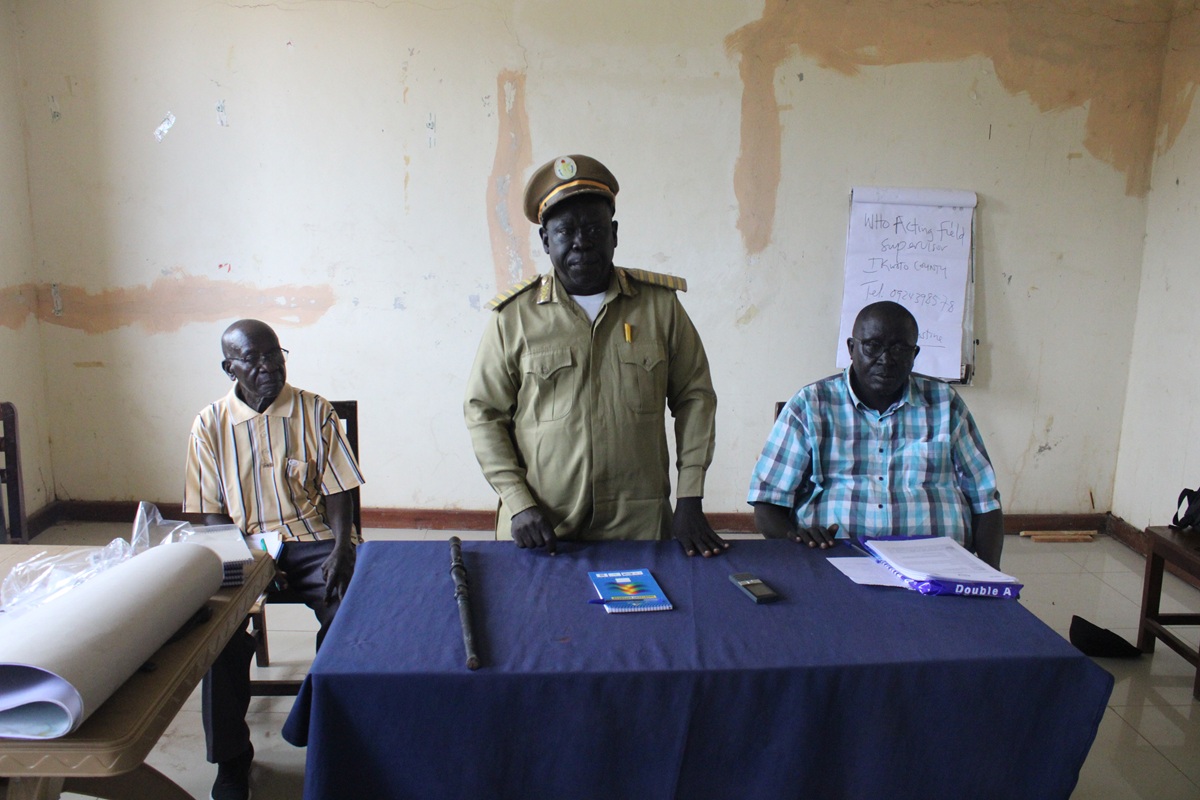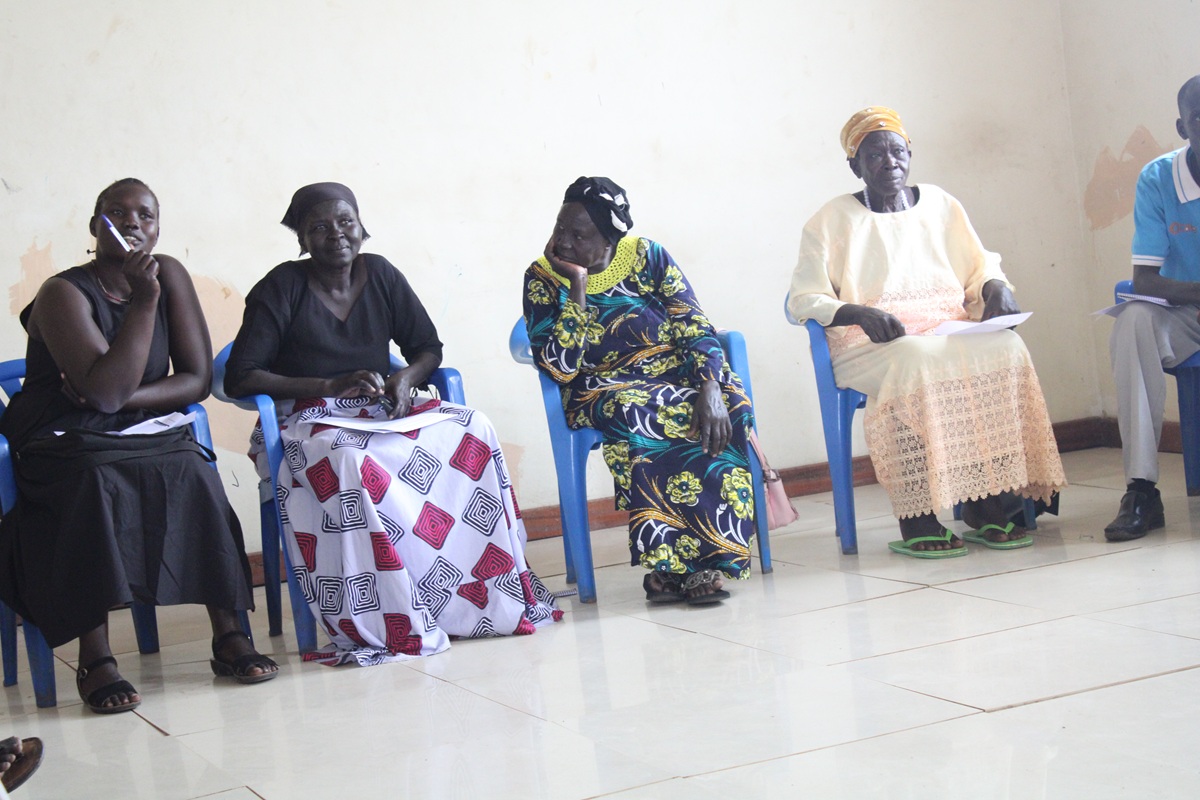CPRM members of Ikwotos County in a group photo after the training.
In a bid to enhance local capacity for conflict prevention and peacebuilding, the South Sudan Peace and Reconciliation Commission (SSPRC) with support from KOICA through UNDP successfully reconstituted and trained the County Peace Response Mechanism (CPRM) members in Ikwoto County.
The three-day training brought together 15 CPRM members, traditional leaders, women representatives, and county authorities to strengthen their role in early warning and early response to emerging conflicts. As part of the exercise, all 15 CPRM members were provided with mobile phones to enable them to report conflict early warning alerts in real time through the CEWER mobile application called AlertMe.
The training focused on building participants’ knowledge and skills on the concept of conflict, conflict analysis, conflict resolution, and the practical use of the mobile app for early warning reporting. The platform also served as an opportunity for community leaders to share experiences, challenges, and recommendations for the peaceful existence of the County.
Mr. Tito Abbas, Executive Director of Ikwoto County appreciated the training, noting its value in strengthening information flow and timely reporting. He also expressed concern about limited resources to rehabilitate the county’s poor roads, which restrict access and response to incidents.
“This training will enable this team to report issues timely so that we can arrest the situation before it escalates. We thank KOICA, UNDP and SSPRC for the job well done,” he remarked.
Mr. Tito Abbas, Executive Director Ikwotos County, giving closing remarks.
Speaking during the training, Mario Odiongo, Chair of the Peace Committee in Ikwoto Payam, highlighted the urgent need to address alcohol abuse among youth, which he described as a major driver of violence.
“Most of the youth consume alcohol and they become something else when they’re drunk. Just recently in Chirokol, one drunk gentleman fired his gun randomly, putting lives at risk. In Seretenya, another drunk youth disappeared and has not been found up to now. There is need for awareness sessions on alcohol abuse in this county,” Odiongo stressed.
Cirilo Lino Kuanga, Chairperson of the Peace Committee in Ikwoto County, emphasized the need to address frequent cattle raids between neighboring communities.
“We are calling for support to stop the frequent cattle raids happening between Buya and Logiri. There is also need to form peace committees in Katire and Imatong payams, so that they can verify and assess incidents locally instead of us rushing there ourselves,” Kuanga said.
From a women’s perspective, Victoria Sadia, representing women’s groups, raised alarm over a harmful practice known as the “ambulance system,” where groups of young men abduct girls, sometimes leading to sexual violence and revenge attacks.
“This practice is causing serious conflicts, where fathers and brothers of the victims hunt down the perpetrators with guns. We need urgent attention to stop this,” she said.
Mrs. Sadia Victoria raising concern over the hamrful ambulance system.
Despite challenges of poor road networks, weak mobile connectivity, and limited resources, the training successfully revitalized Ikwotos CPRM and provided a platform for communities to voice concerns and propose solutions. The event concluded with the official launch of the CPRM in Ikwoto County, reaffirming community commitment to work together in preventing violence and promoting peace





